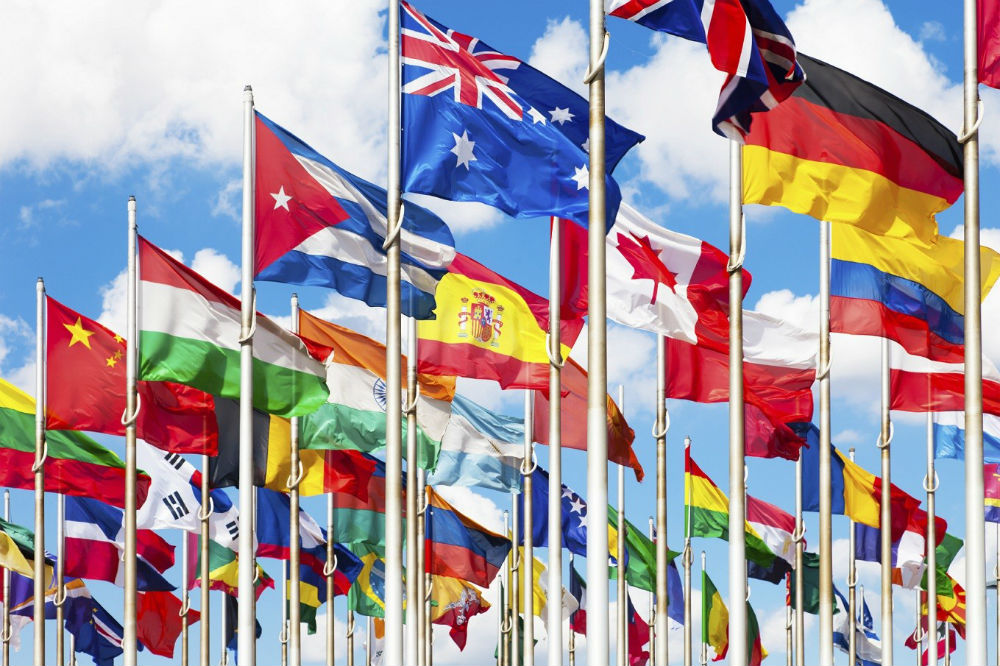Email is supposed to build bridges between international businesses, but a modern study utilizing the Hofstede Cultural Dimensions Theory reveals that countries prefer to email more frequently those countries with whom they share cultural and economic similarities.
These research findings, displayed in an interactive map with email “densities” corresponding to email frequency, reveal that cultural differences need to be bridged in email just as much as they do in person.
Entrepreneurs, startups, and corporations are no strangers to the value of cross-cultural communication skills when engaging in business travel overseas, but how do these skills translate to the digital arena?
Now, as organizations become more multinational in scope and as contemporary business practices are increasingly globally interconnected and interdependent, developing an effective cross-cultural email etiquette is of vital importance. If you master cross-cultural email etiquette in business, you will not only excel in your interpersonal relationships abroad, but you will also uncover new opportunities with international clients and business partners in today’s global marketplace.
Below are four considerations and strategies to keep in mind when communicating through email messages to readers from other cultures:
1. Master the Global English Mentality
In email, while it may seem natural to use American idioms, phrasal verbs, slang and references to events or attitudes specific to American life, instead, in international correspondence, see if you can develop a global English standard. The world is moving towards a new international business English that is practical, purposeful, and useful to most corporations globally as English has become the primary means of communication between businesses in different countries.
To do this, largely focus on general business or commercial terms, rather than specialist vocabulary. Furthermore, if you plan to use jargon or technical terminology, check whether the words you choose are readily found in most standard English language dictionaries. Also, take care when using humor and irony, as these forms of expression are easily misunderstood outside their cultural context.
2. Develop an International Formatting Standard
While this may seem obvious, when writing for an international audience that is culturally accustomed to different formatting standards, review appropriate forms of dates, times, and other units of measurement. For example, 12/1/15 means 12 January 2015 abroad while in the US, it means December 1, 2015. For this reason, write out month names and globally standardize formatting when appropriate.
Also, when scheduling Skype meetings or project deadlines, make sure to specify time zones or refer to international standards, such as Greenwich Mean Time (GMT) or Universal Coordinated Time (UCT) for clarity. Keep in mind other international standards, such as commas for decimal points and the metric system. The knowledge web-portal Global EDGE also provides a good place to find information about accepted conventions for numbers and symbols and other international standards that are field-specific.
3. The Power of Punctuality Around the World
Email punctuality has the power to make or break deals, especially when running up against deadlines, and can make all the difference in the workplace, as it communicates professionalism and commitment.
When emailing an international audience, one cross-cultural consideration that is often overlooked is acknowledging receipt of an important email from overseas, even if you need more time to complete the request.
When emailing overseas, work and sleep hours often occur simultaneously. Most likely, if you wait one day to respond to an email, the reality for your recipient is that two days will have passed. Instead of responding only when you have fulfilled a request, get in the habit of writing a short acknowledgment message upon receipt of the request. Developing this routine behavior of giving details in terms of date and time zone as to when you expect (or will provide) a reply goes a long way to getting things done internationally and establishing a relationship of professionalism, respect, and goodwill.
4. Context is Everything Internationally
The expectations of readers from different cultural and linguistic backgrounds vary greatly as ideas about appropriate business writing styles differ from culture to culture. In some cultures, writing that is direct and concise may be seen as efficient and considerate of the recipient’s time, whereas in other cultures, such writing could come across as curt or impersonal.
Culture is a combination of visible manifestations and unseen influences, so ultimately, reflect on how the readers of diverse cultures present information differently. Develop an openness and adaptability that looks beyond surface ambiguity and inconsistency. The question to consider is whether you are emailing a low-context culture (US, England, Germany) or a high-context culture (China, India, Japan, Middle East, Spain.)
Today, a helpful concept for understanding cultural differences in business communication originates in Edward T. Hall’s distinction between low-context and high-context cultures. A low-context culture, such as the US, values time, directness, and efficiency and wants to get right down to business on email rather than exchange pleasantries. However, a high-context culture, instead of seeing email as a quick form of communication, values detail and respects the value of relationships when conducting business.
In addition to viewing emailing as a way to build relationships, these cultures also regard it as a form of courting a client or business partner. Therefore, when emailing a high-context culture, ensure that you personalize your emails and add a few sentences to build a personal connection with the reader by asking about family and appropriate topics in addition to discussing business. In this way, you will build better business relationships abroad that lead to greater opportunities and long-lasting partnerships.
When you write for international readers, the process of reflecting on inherent habits and behaviors not only gives us a deeper understanding of other cultures but also gives us a greater self-awareness. We learn why we express ourselves a certain way and then enhance our powers of expression with additional communication styles, increased sensitivity, and greater communicative ability.
Related Article: How to Improve Workplace Communication to Further Success
The nature of business is collaboration. Becoming aware and sensitive to the business email etiquette of different countries is the key to establishing long-lasting business relationships around the world and ultimately discovering new horizons of success as partners in the evolution of the global marketplace.
Originally published at www.business.com


